Theme Keynote Speakers
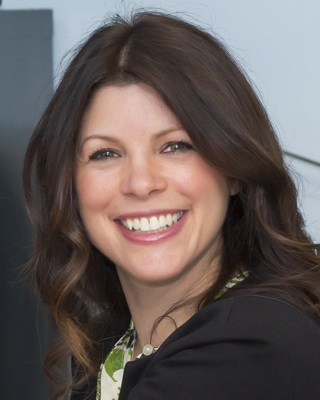
Tal Arbel
Theme 2 Keynote Speaker: Biomedical Imaging and Image Processing
Monday July 20 12:30 – 14:00
Tal Arbel is a Professor in the Department of Electrical and Computer Engineering, where she is the Director of the Probabilistic Vision Group and Medical Imaging Lab in the Centre for Intelligent Machines, McGill University. She is also an elected Associate Member of MILA (Montreal Institute for Learning Algorithms) and the Goodman Cancer Research Centre. Prof. Arbel’s research focuses on development of probabilistic machine learning methods in computer vision and medical image analysis, with a wide range of applications in neurology and neurosurgery. Her recent awards include receiving a Canadian Institute for Advanced Research (CIFAR) AI Chair (2019), and the 2019 McGill Engineering Christophe Pierre Research Award. She regularly serves on the organizing team of major international conferences in both fields (e.g. MICCAI, MIDL, ICCV, CVPR). She is currently an Associate Editor for IEEE Transactions on Pattern Analysis and Machine Intelligence (TPAMI), was previously an Associate Editor for the journal of Computer Vision and Image Understanding (CVIU) and is the Editor-in-Chief of a newly launched arXiv overlay journal: Machine Learning for Biomedical Imaging (MELBA).
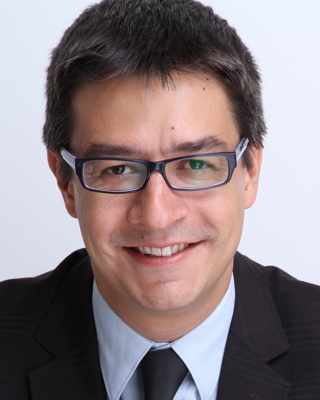
Pierre-Alexandre Fournier
Theme 1 Keynote Speaker: Biomedical Signal Processing
Monday July 20 14:30 – 16:00
Pierre-Alexandre Fournier is co-founder and CEO of Hexoskin, a Montreal-based company focused on clinical-grade wearable sensors and AI software for health and clinical research. He graduated in Electrical Engineering from École Polytechnique de Montréal in 2001 and completed a master’s degree in machine learning at the same university in 2005.
Mr. Fournier worked as an engineer for telecommunications, microelectronics, and artificial intelligence companies before founding Hexoskin with Jean-François Roy.
Hexoskin was founded in 2006 and launched in 2013 the first iPhone compatible smart clothing for health monitoring, which won several international awards. In 2018 Hexoskin launched a remote health monitoring system for astronauts to the International Space Station. The Hexoskin health sensors and software platform are used by hundreds of scientists around the world and have been used to collect data for more than 80 scientific publications.
Mr. Fournier is also an advocate for transparency in healthcare, patient empowerment, and healthcare innovation through design.
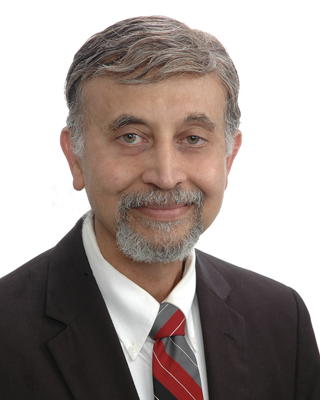
Nitish Thakor
Theme 6 Keynote Speaker: Neural and Rehabilitation Engineering
Tuesday July 21 8:30 – 10:00
Nitish V. Thakor (Life Fellow, IEEE) is the Professor of Biomedical Engineering and Electrical and Computer Engineering at Johns Hopkins University since 1983. He is also the founding Director the Singapore Institute for Neurotechnology (SINAPSE) at the National University of Singapore and Biomedical Engineering since 2012-2018. Prof. Thakor’s technical expertise is in the field of Neuroengineering, where he has pioneered many technologies for brain monitoring to prosthetic arms and neuroprosthesis. He has published 395 refereed journal papers. He is currently the Editor in Chief of Medical and Biological Engineering and Computing, and was the Editor in Chief of IEEE TNSRE from 2005-2011, and the editor of an upcoming Handbook of Neuroengineering (Springer). Prof. Thakor is a recipient of a Research Career Development Award from the National Institutes of Health and a Presidential Young Investigator Award from the National Science Foundation, and is a Fellow of the American Institute of Medical and Biological Engineering, Life Fellow of IEEE, Founding Fellow of the Biomedical Engineering Society, and Fellow of International Federation of Medical and Biological Engineering. He is a recipient of the award of the Academic Career Award and Technical Excellence in Neuroengineering from IEEE Engineering in Medicine and Biology Society, Distinguished Alumnus Award from Indian Institute of Technology, Bombay, India, and a Centennial Medal from the University of Wisconsin School of Engineering.
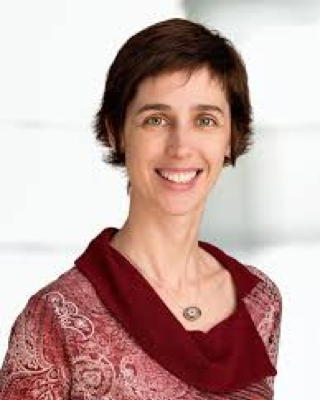
Joelle Pineau
Theme 4 Keynote Speaker: Computational Systems, Modeling and Simulation in Medicine, Multiscale Modeling & Synthetic Biology
Tuesday July 21 12:30 – 14:00
Joelle Pineau is a faculty member at Mila and an Associate Professor and William Dawson Scholar at the School of Computer Science at McGill University, where she co-directs the Reasoning and Learning Lab. She is also co-Managing Director of Facebook AI Research, and the director of its lab in Montreal, Canada. She holds a BASc in Engineering from the University of Waterloo, and an MSc and PhD in Robotics from Carnegie Mellon University. Dr. Pineau’s research focuses on developing new models and algorithms for planning and learning in complex partially-observable domains. She also works on applying these algorithms to complex problems in robotics, health care, games and conversational agents. She serves on the editorial board of the Journal of Artificial Intelligence Research and the Journal of Machine Learning Research and is Past-President of the International Machine Learning Society. She is a recipient of NSERC’s E.W.R. Steacie Memorial Fellowship (2018), a Fellow of the Association for the Advancement of Artificial Intelligence (AAAI), a Senior Fellow of the Canadian Institute for Advanced Research (CIFAR), a member of the College of New Scholars, Artists and Scientists by the Royal Society of Canada, and a 2019 recipient of the Governor General’s Innovation Awards.
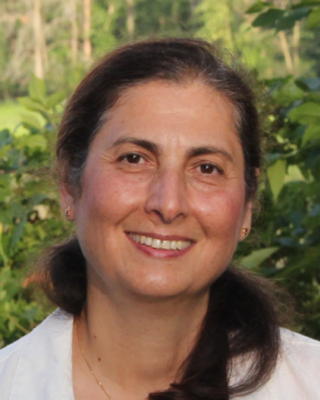
Maryam Tabrizian
Theme 3 Keynote Speaker: Micro/Nano-bioengineering; Cellular/Tissue engineering & Biomaterials
Tuesday July 21 14:30 – 16:00
Maryam Tabrizian is James McGill Professor and Canada Research Chair nominee in Regenerative Medicine and Nanomedicine, cross-appointed between Faculty of Medicine-Biomedical Engineering Department and the Faculty of Dentistry. She became FRSQ-Chercheure nationale awardee (2006), Guggenheim Fellow in Biomedical Sciences (2010), the Fellow of the Biomaterials Science & Engineering (2011) and Fellow of Royal Society of Canada-Academy of Science (2017) for her contribution to the field of Biomedical Engineering and Biomedical Sciences. She has established expertise in the design of advanced biomaterials and biointerfaces for their application in nanomedicine, regenerative medicine and Lab-on-a-chip devices. She was the founding director of the Centre for Biorecognition and Biosensors (CBB) from 2003 to 2011. Professor Tabrizian is the author of over 235 peer-reviewed papers (H-index 60), 110 invited lectures,14 patents, and 340 communications. She is currently the Editor-in-Chief of Materials (MDPI ISSN 1996-1944), Regional Editor (North America) of Journal of Biomaterials and Tissue Engineering and Editorial Board of Journal of Biological Engineering.
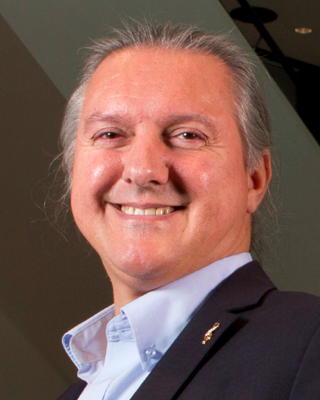
Sandro Carrara
Theme 7 Keynote Speaker: Biomedical Sensors and Wearable Systems
Wednesday, July 22 8:30 – 10:00
Sandro Carrara is an IEEE Fellow for his outstanding record of accomplishments in the field of design of nanoscale biological CMOS sensors. He is also the recipient of the IEEE Sensors Council Technical Achievement Award in 2016 for his leadership in the emerging area of co-design in Bio/Nano/CMOS interfaces. He is a faculty member at the EPFL in Lausanne (Switzerland). He is former professor of optical and electrical biosensors at the Department of Electrical Engineering and Biophysics (DIBE) of the University of Genoa (Italy) and former professor of nanobiotechnology at the University of Bologna (Italy). He holds a PhD in Biochemistry & Biophysics from University of Padua (Italy), a Master degree in Physics from University of Genoa (Italy), and a diploma in Electronics from National Institute of Technology in Albenga (Italy). His scientific interests are on electrical phenomena of nano-bio-structured films, and include CMOS design of biochips based on proteins and DNA. Along his carrier, he published 7 books, one as author with Springer on Bio/CMOS interfaces and, more recently, a Handbook of Bioelectronics with Cambridge University Press. He has more than 250 scientific publications and is author of 13 patents. He is now Editor-in-Chief of the IEEE Sensors Journal, the largest journal among 180 IEEE publications; he is also founder and Editor-in-Chief of the journal BioNanoScience by Springer, and Associate Editor of IEEE Transactions on Biomedical Circuits and Systems. He is a member of the IEEE Sensors Council and his Executive Committee. He was a member of the Board of Governors (BoG) of the IEEE Circuits And Systems Society (CASS). He has been appointed as IEEE Sensors Council Distinguished Lecturer for the years 2017-2019, and CASS Distinguished Lecturer for the years 2013-2014. His work received several international recognitions: several Top-25 Hottest-Articles (2004, 2005, 2008, 2009, and two times in 2012) published in highly ranked international journals such as Biosensors and Bioelectronics, Sensors and Actuators B, IEEE Sensors journal, and Thin Solid Films; a NATO Advanced Research Award in 1996 for the original contribution to the physics of single-electron conductivity in nano-particles; six Best Paper Awards at the IEEE Sensors Conference 2019 (Montréal), Conferences IEEE NGCAS in 2017 (Genoa), MOBIHEALTH in 2016 (Milan), IEEE PRIME in 2015 (Glasgow), in 2010 (Berlin), and in 2009 (Cork); three Best Poster Awards at the EMBEC Conference in 2017 (Tampere, Finland), Nanotera workshop in 2011 (Bern), and NanoEurope Symposium in 2009 (Rapperswil). He also received the Best Referees Award from the journal Biosensor and Bioelectronics in 2006. From 1997 to 2000, he was a member of an international committee at the ELETTRA Synchrotron in Trieste. From 2000 to 2003, he was scientific leader of a National Research Program (PNR) in the filed of Nanobiotechnology. He was an internationally esteemed expert of the evaluation panel of the Academy of Finland in a research program for the years 2010-2013. He has been the General Chairman of the Conference IEEE BioCAS 2014, the premier worldwide international conference in the area of circuits and systems for biomedical applications.
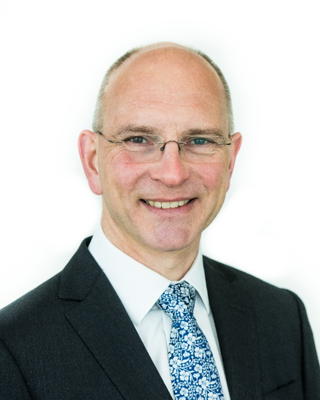
Thomas Stieglitz
Theme 9 Keynote Speaker: Therapeutic & Diagnostic Systems and Technologies
Thursday July 23 8:30 – 10:00
Thomas Stieglitz (M’95–SM’09) received a Diploma degree in electrical Engineering from Technische Hochschule Karlsruhe, Germany, in 1993, and a PhD and rehabilitation degree in 1998 and 2003 from the University of Saarland, Germany, respectively. In 1993, he joined the Fraunhofer Institute for Biomedical Engineering in St. Ingbert, Germany, where he established the Neural Prosthetics Group. Since 2004, he is a full professor for Biomedical Microtechnology at the Albert-Ludwig-University Freiburg, Germany, in the Department of Microsystems Engineering (IMTEK) at the Faculty of Engineering and serves as deputy speaker of the Cluster BrainLinks-BrainTools, board member of the Intelligent Machine Brain Interfacing Technology (IMBIT) Center and spokesman for the profile neuroscience / neurotechnology of the university. His research interests include neural interfaces and implants, biocompatible assembling and packaging and brain machine interfaces.
Dr. Stieglitz has co-authored about 140 peer reviewed journal publications, 320 conference proceedings and holds 25 patents. He is co-founder and scientific consultant of CorTec GmbH and neuroloop GmbH, two spin-off companies which focus on neural implant technology and neuromodulation, respectively. Dr. Stieglitz is member of the IEEE EMBS and its TC on Neuroengineering, the Materials Research Society, the German Biomedical Engineering Society (DGBMT im VDE) where he is chair of the Neural Prostheses and Intelligent Implants section and founding member of the International Functional Electrical Stimulation Society (IFESS).
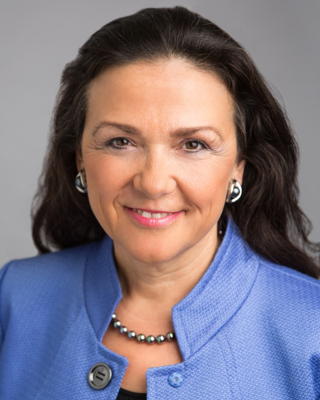
Zorina Galis
Theme 5 Keynote Speaker: Cardiovascular and Respiratory Systems Engineering
Thursday July 23 12:30 – 14:00
Zorina is the Chief of the Vascular Biology and Hypertension Branch at National Heart, Lung, and Blood Institute that provides scientific leadership and enables extramural research, from basic discovery through technology development, translation, and multi-site clinical trials.
Building on her own transdisciplinary training in physics, biophysics, cell biology, pathology, and vascular medicine, at the University of Bucharest, Romania, the McGill University Faculty of Medicine, Montreal, Canada, and the Harvard Medical School, Boston, USA, Zorina has been a pioneer in connecting, creating, and leading successful diverse collaborations to tackle major biomedical scientific and implementation challenges (Google Scholar). She was the first academic hired jointly by Emory Medicine and Georgia Institute of Technology and the first female faculty in the Georgia Tech Bioengineering program, then first PhD tenured in Medicine/Cardiology. Zorina played a crucial role in the subsequent formation and initial funding of the joint Emory-Georgia Tech BME department, and was instrumental in increasing female representation among BME graduate students and faculty. Subsequently, Zorina simultaneously held the positions of Scientific Advisor and then Chief Scientific Officer, Cardiovascular R&D at Eli Lilly and Co. and that of Professor of Vascular Surgery, at Indiana University. At NIH, Zorina has continued to create and lead large interdisciplinary scientific initiatives and funding opportunities, such as the NIH Common Fund Human BioMolecular Atlas Program (HuBMAP) that aims to create a multidimensional, multiscale Google-like map for the human body, recently recognized with an NIH Director Collaboration Award.
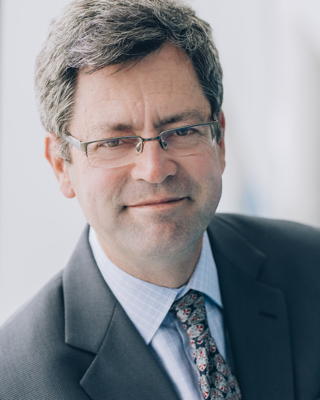
Sylvain Martel
Theme 8 Keynote Speaker: Biorobotics and biomechanics
Thursday July 23 14:30 – 16:00
Professor Sylvain Martel is Director of the Nanorobotics Laboratory and Professor in the Department of Computer and Software Engineering and the Institute of Biomedical Engineering at Polytechnique Montréal, Campus of the University of Montréal, as well as Adjunct Professor in the Department of Bioengineering at McGill University. He holds the Tier 1 Canada Research Chair in Medical Nanorobotics, acts as Chair of the IEEE Technical Committee on Micro- Nanorobotics and Automation, and he is Fellow of the Canadian Academy of Engineering, Fellow Engineers Canada as well as IEEE Fellow. He received many awards mostly in interdisciplinary research. While at the Department of Electrical Engineering and the Institute of Biomedical Engineering at McGill University and later in the Department of Mechanical Engineering at MIT prior to join Polytechnique Montréal, he developed several biomedical technologies including platforms for remote surgeries, cardiac mapping systems, and new types of brain implants for decoding neuronal activities in the motor cortex. Dr. Martel’s interdisciplinary research group is credited for the first demonstration of the controlled navigation of an untethered object in the blood vessel of a living animal. Since 2001, Prof. Martel’s research focus on developing new technologies for cancer therapy that enable the delivery of therapeutics directly to active cancer cells to maximize the therapeutic outcomes while minimizing toxicity for the patients. Prof. Martel is recognized worldwide as a pioneered and leading authority in the development of navigable therapeutic agents and novel interventional platforms for cancer therapy.
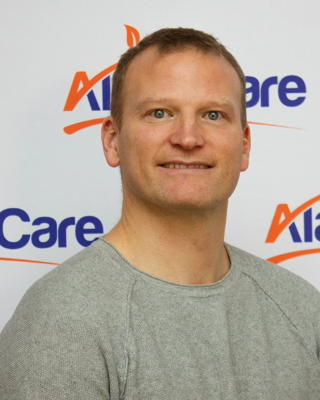
Adrian Schauer
Theme 10 Keynote Speaker: Biomedical & Health Informatics
Friday July 24 8:30 – 10:00
Adrian Schauer is the founder and CEO of AlayaCare, a healthtech start-up delivering the next disruptive solution for the home healthcare industry by combining remote patient monitoring, clinical documentation and back office software. Adrian is a serial technology entrepreneur having built two successful mobile software companies; both achieving leadership positions in their respective markets. Adrian is also an active Angel Investor and sits on the boards of several companies including fast growing technology firms like the point-of-care medical device company Chipcare, the SaaS company TrackTik, and the GRC software provider Resolver. Adrian is also the co-founder of the Madiro Fund, an organization created to support innovative solutions to the health problems in low income countries.
Prior to spinning Vortex Connect out as an independent company, Adrian had co-founded the market leading mobile marketing company Vortex Mobile where he was in charge of product strategy. Vortex Mobile was recognized for 2 consecutive years as one of Canada’s 50 Fastest growing companies by Profit Magazine and was acquired by Transcontinental in 2010.
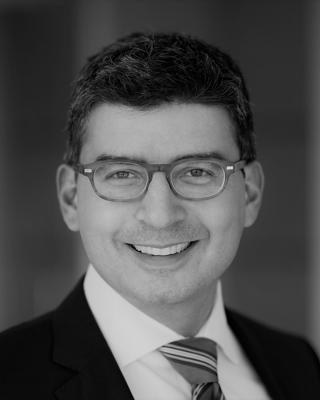
Theodore Papagiannis
Theme 12 Keynote Speaker: Translational Engineering for Healthcare Innovation and Commercialization
Friday July 24 14:30 – 16:00
Theodore Papagiannis is a partner at Knobbe Martens, an intellectual property (IP) boutique firm with offices in California, Washington DC, New York and Seattle. He advises companies on developing comprehensive intellectual property portfolios and strategies. Relatedly, Theodore has extensive experience in representing early stage medical device companies and other start-ups in IP due diligence matters. He also conducts strategic IP evaluations on behalf of venture capital firms, other investors and other entities in connection with an investment round or acquisition.
Theodore has extensive experience in strategically growing IP portfolios in the medical device arena, including in the fields of spine and other orthopedics, injection systems, cardiac and cardiovascular technologies (e.g., for the treatment of atrial fibrillation and other arrhythmias, hypertension, etc.), denervation and neuromodulation, hypertension, tissue ablation, catheters, sheaths and other intravascular technologies and skin treatment. He also has experience with negotiating licenses and other agreements to enhance IP portfolios on behalf of clients.
Theodore is currently a member of the board of directors of Sustain SoCal, an organization that accelerates sustainability in Southern California through innovation, collaboration and education, and has been involved in leadership roles with the organization since its inception in 2010. He has unique technical and IP experience in clean technologies, including water and wastewater treatment, recycling and waste management, lighting, clean energy and the like, and is Chair of the firm’s Cleantech Practice Group.
Theodore has presented IP-related workshops and symposia at several recent EMBC meetings. Prior to beginning his legal career, Theodore worked as an engineer for nearly a decade. He is a licensed Professional Engineer in the State of California.
